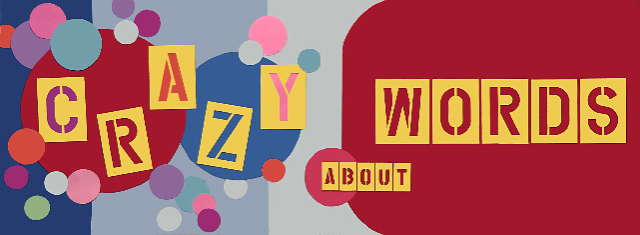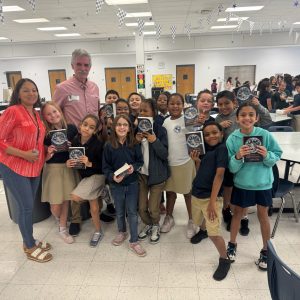Making sense of “Jabberwocky”
Joe Mc Kay’s “Crazy about Words”
…toasting our language since 2003!
I was minding my Ps and Qs recently, when I ventured upon “portmanteau words,” that wonderful lexical key which opened the door to the creation of hundreds of new words since 1871, courtesy of Lewis Carroll. Each is a blend of two or more words, their sounds and meanings combined.
In his Through the Looking-Glass, he has Humpty Dumpty explain the concept to Alice, “You see, it’s like a portmanteau…there are two meanings packed up into one word.” ["Portmanteau" is a French word, (carry+cloak) carried over to English, and currently called a “suitcase,” which is designed in two halves, but combines into one.]
Carroll’s genius gave us “slithy” (pronounced “sly-thee,” he insisted) from “lithe and slimy” and “mimsy” from “miserable and flimsy” and my favorite, “frumious,” describing the “fuming and furious” Bandersnatch in the nonsense poem, "Jabberwocky."
Victorians were besotted with Alice, as we are today with Harry Potter. Well-read, language-proud Englishmen made creating them fashionable, and “portmanteau words” proliferated.
Most were “nonce words,” neo-logisms made up on the spot or for an occasion, but some went on to enter the standard vocabulary. Within a relatively short while, we were breathing “smog,” eating “brunch” and overnighting at “motels.”
Today we generally call them “hybrid words.” But technically, a “hybrid word” is composed of elements from different languages, e.g., “pescalator… a conveyor belt used on fish farms to move fish, as they grow, from one tank to another.” So I’m advocating for not letting go of “portmanteau” or the memory of Lewis Carroll.
Think of the lexical wealth he spawned: “bionic” (biology+electronic), “humongous” (huge+monstrous), “motorcade” (motor+cavalcade), “outpatient” (outside+patient), “palimony” (partner+alimony), “sitcom” (situation+comedy), and “telegenic” (television+photogenic), to name a few from a long list.
What name might Tanganyika and Zanzibar have used when they merged in 1964, without the portmanteau concept that suggests “Tanzania?”
How could we have survived these past twenty years, our political sense of humor intact, without “Billary,” and how would we cross the Channel without the “Chunnel?”
Portmanteau words pour out of our creative brains as we face new situations… “Spanglish” and “Chinglish” and “Hinglish” and “Ponglish” are heard in the melting pots of English-speaking nations that continue to lure peoples of the world. “Sporks” and “knorks” are designed to make our cutlery choices simpler. And “e-mail” is making snail mail obsolete!
Erin Mc Kean, former Editor of the OED, in her new Wall Street Journal column, “Week in Words,” recently reported that in the 1970s, Oliver, a chimp who walked upright, was suspected of being a “humanzee” until DNA testing proved otherwise.
So what can we make of Carroll’s choice of a title for his nonsense poem in Through the Looking Glass? The clue is in the “-wocky” part of the word; it’s from “wocor” an old Anglo-Saxon word meaning “offspring or fruit.” There may have been a lesson intended: jabber often produces useful language as its offspring.
Alice herself said of Jabberwocky, “It seems very pretty but it’s rather hard to understand. Somehow it seems to fill my head with ideas…”
Jabber away!
Comments, questions, and exclamations welcome at crazyaboutwords@gmail.com






